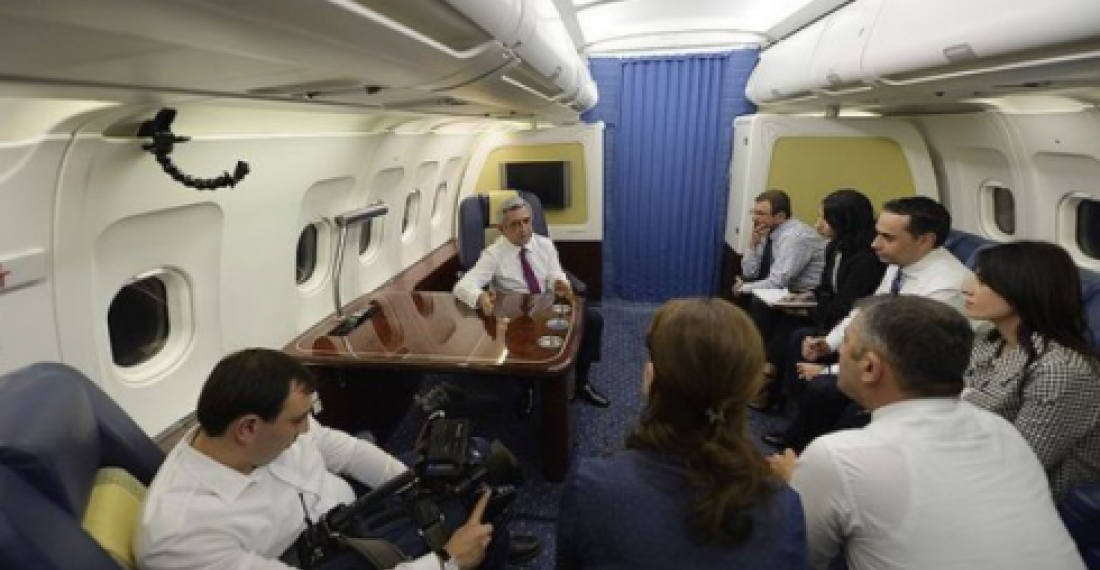Senior Armenian and Azerbaijani figures and the OSCE Minsk Group co-chair countries have spoken positively of Monday evening’s meeting between the two warring countries’ presidents in Vienna.
“All in all, I and my counterparts are satisfied with the results of the talks. During the talks, the Azerbaijani president assured that he did not intend to reach a solution to any problem by military force,” Armenian president Serzh Sargsyan told journalists on the journey back from the Austrian capital.
The meeting between Sargsyan and Azerbaijani president Ilham Aliyev was the first since an outbreak of heavy fighting, the worst for two deacdes, killed dozens at the beginning of April.
“Let's see how the events will develop. Our desire is that this result be achieved in a peaceful way," said the Armenian president who, along with Aliyev, also met US Secretary of State John Kerry and European Union foreign policy chief Federica Mogherini in Vienna.
The two presidents agreed that an OSCE investigative mechanism should be in place, that the personal representative of the OSCE chairperson in office should have his capacity expanded, that information on missing people should be exchanged, and that a next round of talks should take place in June.
Elmar Mammadyarov, Azerbaijan’s foreign minister, also gave a positive evaluation of the talks. “I agree with Russian Foreign Minister Sergey Lavrov’s assessment that yesterday’s meeting opens up a good opportunity to start the substantial talks on well-known step-by-step approach on conflict resolution,” he said.
The talks were also welcomed by France, Russia and the USA, the three co-chair countries of the OSCE Minsk Group which is attempting to find a lasting solution to the conflict.
“We are very encouraged by the outcome of yesterday's meetings," said James Warlick, the US ambassador to the Minsk group. "Both presidents committed themselves to respect the ceasefire, put in place important confidence-building measures, and begin negotiations next month that can lead to a comprehensive settlement."
“These obligations are very important. France urges the sides to fulfill them and as a Minsk Group co-chair country together with Russian and US partners France will continue to act as a mediator”, said Romain Nadal, a spokesman for the French foreign ministry.
It remains to be seen whether the small diplomatic steps taken in Vienna will help strengthen the ceasefire in the long term.
“It is possible to say that the acute phase of the conflict has passed,” said Dimitri Peskov, spokesman for the Russian president. President Vladimir Putin discussed the Nagorno-Karabakh issue with members of Russia’s security council on Tuesday evening, the Russian government confirmed.
The fragile ceasefire deal reached on April 5 was brokered by Russia. Russia is the main supplier of arms to both Armenia and Azebaijan.
SOURCE: commonspace.eu and agencies
PHOTO: Sargsyan talking to journalists after the meeting, picture form Armenpress







